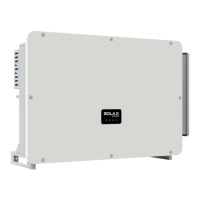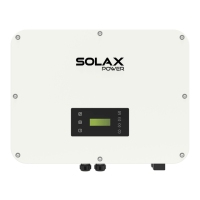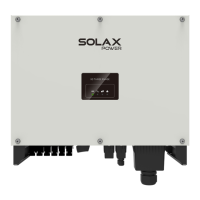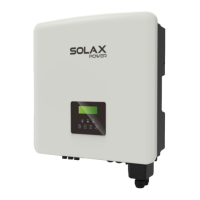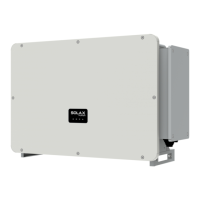7
Safety
WARNING!
• Do not crush or impact battery, and always dispose of it according to relevant safety
regulations.
• The battery module may catch fire when heated above 150°C/302°F.
• In case of catching fire, the battery module will produce noxious and poisonous
gases, and please keep away the battery.
• Damaged batteries may leak electrolyte or produce flammable gas. If users suspect
that the battery is damaged, please immediately contact SolaX for advice and
information.
• All operations of T-BAT SYS relating to electrical connection and installation must be
carried out by qualified personnel.
CAUTION!
• If the battery module is not installed within a month after receipt, it must be charged
for maintenance. Non-operational batteries should be discarded according to the
local regulations.
1.3 Additional Safety Instructions
Surge protection devices (SPDs) for PV installation
DANGER!
• Over-voltage protection with surge arresters should be provided when the PV power
system is installed. The grid connected inverter is fitted with SPDs in both PV input
side and MAINS side.
Direct or indirect lightning strikes can cause failures. Surge is the main cause of lightning
damage to most devices. Surge voltage may occur at photovoltaic input or AC output,
especially in remote mountain areas where long distance cable is supplied.
Please consult professionals before installing SPDs.
The external lightning protection device can reduce the influence of direct lightning strike,
and the lightning protection device can release surge current to the earth.
If the building installed with external light protection device is far away from the inverter
location, in order to protect the inverter from electrical and mechanical damage, the
inverter should also install an external lightning protection equipment.
In order to protect DC system, a two-phase surge protection device is needed between
DC cable of inverter and photovoltaic equipment module.
In order to protect the AC system, a two-phase surge protection device should be installed
at the AC output, located between the inverter and the grid. Installation requirements must
comply with IEC61643-21 standard.
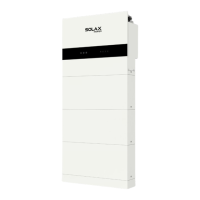
